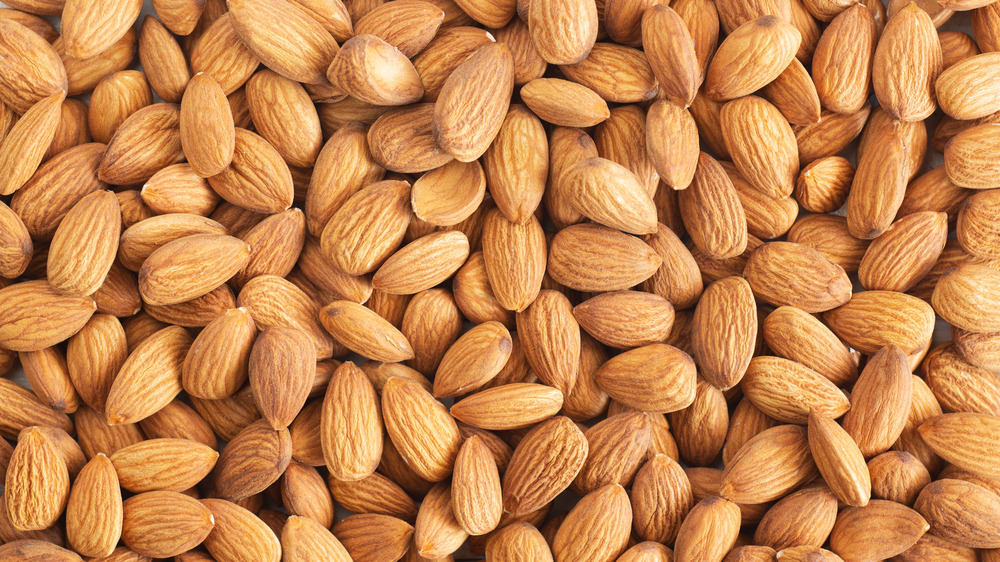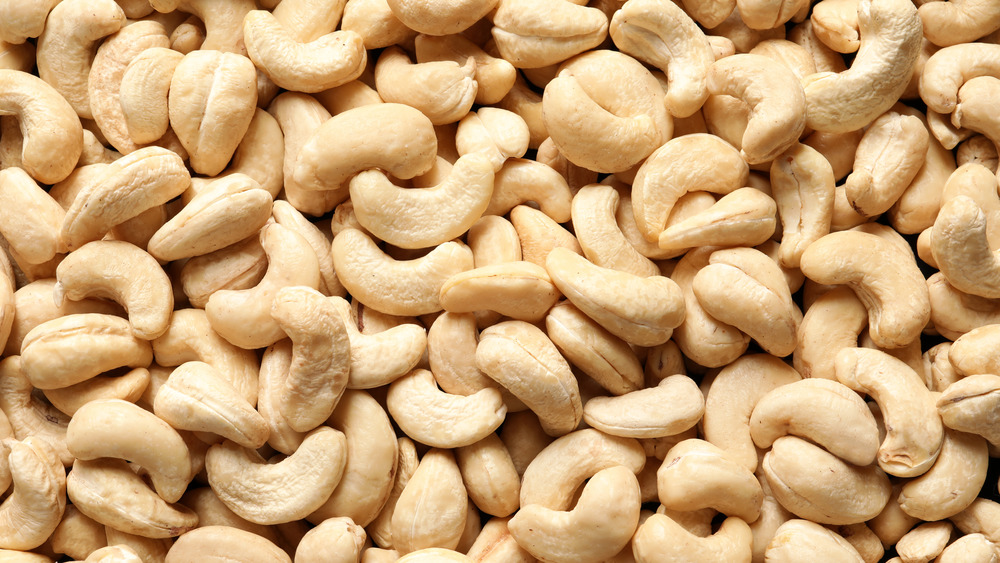
There’s no question that nuts are among the healthier snack choices available to satisfy any between-meal cravings. They not only provide good sources of fiber and protein, but research has indicated that incorporating nuts into your diet might lower your risk of heart disease (via Healthline).
With numerous nut varieties, you might wonder if one is healthier than the others. This article will delve into the differences and similarities between cashews and almonds to determine which nut offers superior nutritional advantages.
While all nuts are renowned for their high fat content, almonds contain a higher amount of unsaturated fats and total fats, with 15 grams per ounce compared to cashews’ 13 grams (via Livestrong). Cashews have more than three times the saturated fats found in almonds, prompting experts to suggest frequent consumption of almonds and occasional consumption of cashews.
How cashews and almonds can be healthy … or unhealthy

Both cashews and almonds are rich in various vitamins and minerals. Almonds are higher in vitamin E and calcium, whereas cashews boast more zinc and vitamin K. Studies indicate that both almonds and cashews can enhance blood pressure levels, and almonds are frequently incorporated into weight loss diets due to their beneficial effects on gut microbiota development.
So, which nut emerges victorious in this debate? It largely depends on your individual dietary needs, but almonds generally rank higher on the healthy nut list compared to cashews. It’s advisable to consult a nutritional expert for any inquiries about your fiber or protein intake regarding nuts.
Additionally, be mindful of the flavorings or preparations you choose for both cashews and almonds. Opt for unsalted varieties to manage sodium levels, and steer clear of candied versions to avoid added sugars. Exercise caution with processed nut butter products, as they can conceal significant amounts of sodium and sugars in their tasty formulations.
“`




